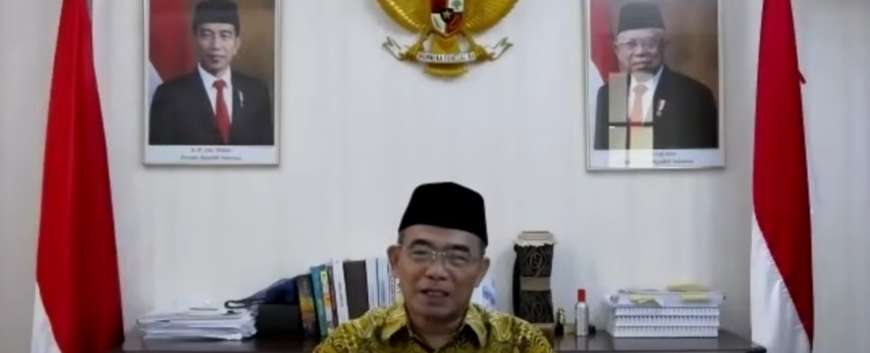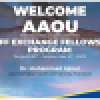- Posted by M Yusuf Wibisana
- 08 Feb 2021
- PUSAT
- Total View 0
Defining the Roles of Universitas Terbuka Students Living Abroad in Independent Campus
Overseas Students Management Center of Universitas Terbuka or Pusat Pengelolaan Mahasiswa Luar Negeri - Universitas Terbuka (PPMLN-UT) together with study groups or kelompok belajar (pokjar) in Hongkong took initiatives in organizing the webinar that brought up the theme “Defining the Roles of Indonesia Open University Students Living Abroad in Independent Campus or Memaknai Peran Mahasiswa Universitas Terbuka Luar Negeri Dalam Kampus Merdeka”.
The program was held on-line on Sunday, 07 February 2021 which was then followed by around 150 participants both domestic and overseas through Zoom platform, and it was also broadcast live through UT-TV. It is necessary to note that the students of Universitas Terbuka (UT) living abroad are currently reaching up to 2500 people and this figure continues to increase, distributed across 45 different countries and 65 cities around the globe.
Acting as the keynote-speaker is the Coordinating Minister of Human Development and Culture Affairs (Menko PMK), Prof. Dr. Muhadjir Effendy, M.A.P., who, in his remarks, expressed his pleasure as he had been able to conduct face-to-face virtual meeting with the students of UT who are living in Hongkong, in particular, and other countries, in general. UT is said to be the higher education institution as its learning and teaching processes have thus far not been adversely affected by the Covid-19 pandemic that has spread across the globe. With the pandemic currently existing, it has made us more thoughtful as to how important the information and communication technology is which comes along with the 4.0 Industrial Revolution in education sector, especially with respect to the learning and teaching processes.
It is also said that education programs should consist of 4 aspects; Quality, Quantity, Access, and Compatibility (Kualitas, Kuantitas, Akses dan Kesesuaian).
Quality without access would result in imbalance and inequality; as quality without quantity will make us even further left behind; quantity without fair and equal access would also create imbalance or inequality; quality and quantity that fails to ensure incompatibility with the employment requirements, would be fruitless.
It is the duties of the Coordinating Minister of Human Development and Culture Affairs (Menko PMK) that such imbalance and inequality would never occur and he should ensure that, in terms of education, there is no single Indonesian who is ignored or neglected. UT is currently thriving and becomes the leader in terms of providing the all-embracing and broader access that gives the eduation opportunity for all the people of Indonesia wherever they are.
The Coordinating Minister strongly believes that the students of UT have their own valuable and precious experiences that the students of conventional universities or colleges do not have, such as studying while working at the same time. It is expected that the students would have some well-prepared plans upon their graduation or study completion and they will eventually return to Indonesia so that can play better roles as well as take stronger part in the country’s development.
In his remarks, UT’s Rector expressed his pride of all the overseas students of UT who have successfully manage their time to study while working as the same time in order to make their way up for their glorious futures.
Present at the webinar forum were Yaya Sutarya, the Education Attaché of the Embassy of the Republic of Indonesia (KBRI) in Beijing; Ricky Suhendar the Counsel General of the Republic of Indonesia; Director General of Higher Education Learning and Students, Prof. drh. (Vet.) Aris Junaidi, Ph.D., Director of Overseas Students Management Center of Universitas Terbuka (PPMLN-UT), Dra. Dewi Artati Padmo Putri, M.A., Ph.D.; as well as the Leader of UT’s Study Groups – Hongkong, Natma Emy Loga.






